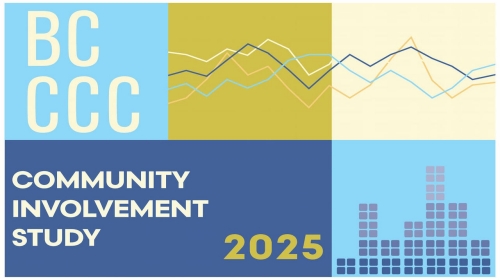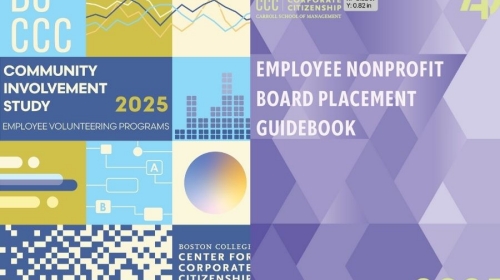WEBINAR: This webinar explores how corporate giving will be reshaped by the One Big Beautiful Bill. Hear directly from corporate citizenship leaders as they share innovative, real-world strategies that deliver impact for communities and results for business.
A personal commitment: learning

The following is excerpted from Issue 29 of The Corporate Citizen.
“Learning is not attained by chance, it must be sought for with ardor and attended to with diligence.” –Abigail Adams
Continual learning is an essential part of corporate citizenship practice. Our work is varied, fast-paced, and constantly evolving, all of which require ongoing evaluation of the trends and skills that maximize performance. In fact, the Center’s Profile of the Professionals research tells us that the majority of people in corporate citizenship roles invest in professional development directly relating to the environmental, social, and governance dimensions of business.
However, as Abigail Adams identified, learning does not happen by accident. We know that your time is precious. Corporate citizenship professionals have increasing workloads as your good work gains more attention from executives and you respond to mounting engagement and reporting demands.
Despite—and even because of—your shifting day-to-day responsibilities, part of your corporate citizenship role is to evolve with the field. The Boston College Center for Corporate Citizenship offers resources to help you develop professional skills that meet the growing needs and rigorous standards by which your stakeholders judge your work. We offer a variety of programs in several convenient formats adapted to multiple learning preferences. We help you develop core competencies that not only advance corporate citizenship across your company, but advance your personal career goals as well.
As we strive to meet those needs, we are delighted to offer the Accelerated Certificate of Practice Summit, which makes the most of your time by offering in-person course workshops and high-value networking experiences blended with self-paced online learning. This program dives deep into CSR best practices, and allows you to learn core subjects and elective topics most relevant to your work. Summits take place in the fall in San Diego and the spring in Boston. With this program, you can earn your Certificate in Corporate Citizenship Practice in half the time out of the office at a fraction of the cost.
In the latest edition of the Corporate Citizen, our special career and learning issue, you will find leaders sharing stories of growth and continuous improvement; from the Mary Kay Foundation’s iterative journey from an informal donation program to a strategic corporate citizenship effort, to BBVA’s commitment to turning around its score on the Community Reinvestment Act examination.
Also in this issue, you will find an extensive catalog of our Executive Education offerings for the coming year. We invite you to browse the courses we offer—in-person, online, and in blended format—to explore how we can help you meet your professional goals in corporate citizenship. We are here to support your learning path every step of the way.
Read more in Issue 29 of The Corporate Citizen.
Related Content
This study explores shifting trends in employee volunteering, corporate giving, and other means of corporate community involvement.
This guidebook offers insights on placing employees in nonprofit board service roles.
This Member Meetup focused on strategies for building compelling business cases for corporate social responsibility initiatives. Two organizations shared their approaches to securing leadership buy-in and funding for CSR programs by anchoring requests in business strategy, quantifying value, and crafting persuasive narratives.
RESEARCH BRIEF - To examine whether CSR Activities affect Long-term Stock Returns, researchers studied 6971 observations of common stock of Japanese firms operating globally, along with accounting data and ownership data.
RESEARCH BRIEF - The study utilized a dataset of 28 globally listed airlines with 420 firm-year observations of ESG data over time.
Check out the latest findings and best practices from BCCCC's Community Involvement Board, comprised of corporate leaders working in corporate giving, community relations, and related roles.
Check out the latest findings and best practices from BCCCC's ESG Reporting Board, comprised of corporate leaders working in sustainability reporting.






